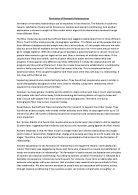Another theory that suggests an explanation of the formation of relationships is direct reinforcement, with operant conditioning applied to the formation of relationships. According to this theory relationships are rewarding, and bring us things like approval, happiness and smiles etc. Foa & Foa argued that rewards that a relationship can bring may also include sex, status, money, love, help etc as they also fulfil our various social needs (Argyle) aswell as reproductive needs, need for self-esteem etc. . Griffitt and Guay (1969) found that participants who were positively evaluated, or rewarded, by the experimenter rated that experimenter more positively. Rabbie and Horowitz (1960) found that strangers expressed liking to those who helped them win a task in a laboratory experiment. However, because the study was undertaken in a lab setting it may lack ecological validity.
Indirect reinforcement supports classical conditioning applied to the formation of relationships. The theory has a bases that we want to form relationships with those who we associate with positive feelings. May and Hamilton (1980) asked female students to say how much they liked the look of strangers whose photographs they had, whilst either pleasant or unpleasant music was played. The study fond those who were listening to pleasant music rated men as more attractive than those who were listening to unpleasant music. Veitch amd Grifitt (1979) tested the reinforcement model by arranging for single participants to wait in an experimenter’s office while the experimenter ‘went on an errand’. The radio was left on and participants heard one of two possible news broadcasts: one positive and one negative. When the experimenter returned the participants were asked to fill in a questionnaire to assess their feelings. Afterwards they then had to rate another supposed students attitudes in a questionnaire, whose attitudes had already been written to be in close agreement or disagreement with the participants attitudes earlier expressed. The study found that those who did the rating with a positive news broadcast were more likely to give a higher rating to the supposed student, regardless to whether or not the attitudes expressed were the same as the participant. This supports the view that similarity promotes liking. However, studies like this rely on the ‘bogus-stranger’ method, and may lack ecological validity because the participants do not actually meet the stranger and it’s likely that there is demand characteristic involved (Duck). Other critical comments made about the behaviourist approach to relationship formation include that they’re environmentally deterministic. The approach supposes that receiving a reward from someone will automatically result in the person being liked. This approach fails to credit consciousness and free will and doesn’t take into account the impact of evolution, mating processes and the biological explanation. Aron (2005) noted that those from self report questionnaires measured very romantically partnered showed high level of activity in the ventral tegmental area compared to those not as romantically involved. Aron suggests this response to certain people is the brain’s way of making us focus on an appropriate partner and not waste time looking elsewhere! On the other hand, this approach does enable psychologists to do experiments which may isolate other factors which lead to formation behaviours. This may be useful to those who offer advice to people seeking partners.
The filter model by Kerckhoff and Davis suggests that we start in a position that we’re able to form relationships with anyone, but in reality they argue that we filter out potential partners fore various reasons and in the end our choice is made from a field of desirables. The model states that relationships go through three filters: social/demographic variables, similarity of attitudes, emotional needs. The social/demographic variable refers to the fact that we’re likely to form relationships with those who are in our social circle and geographical area. So its likely that we’d choose to form a relationship with someone with the same educational and socio-economic backgrounds, religion, culture and politics etc. There are many supporting studies which confirm those from similar backgrounds etc are more likely to sustain relationships, however, it does not mean that it’s impossible for people from very different backgrounds to have happy and long term partnerships. The other two filters in the model are more about the maintenance and breakdown of relationships as opposed to the formation. The model has been criticised for being simplistic and it doesn’t acknowledge the fluid nature of relationships and the fact that there can be many different factors at work on relationships at any one time. The model focuses on heterosexual, western relationships to may lack cultural and population validity.







